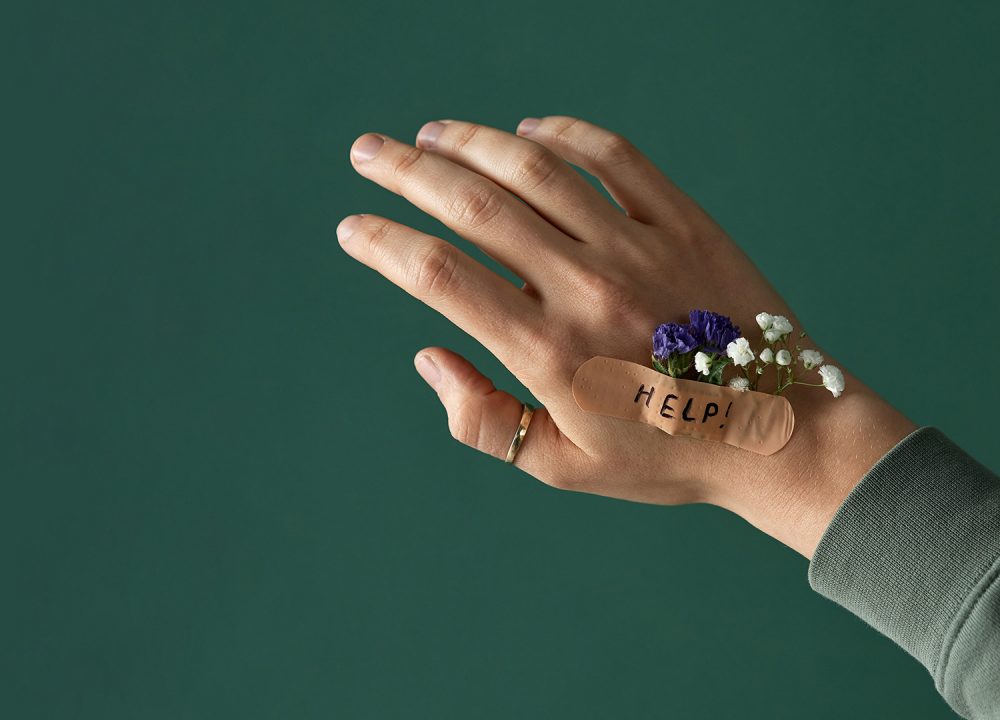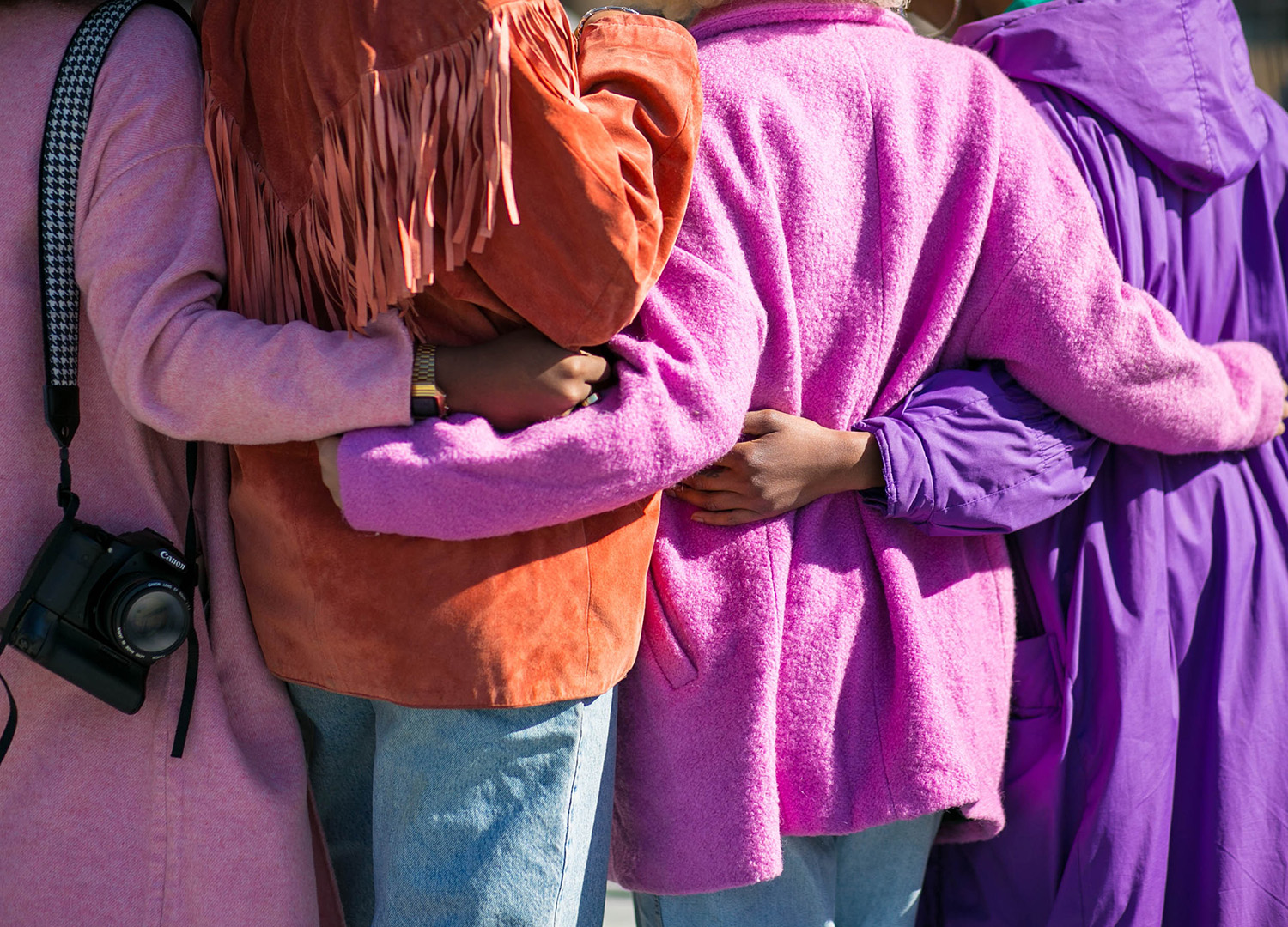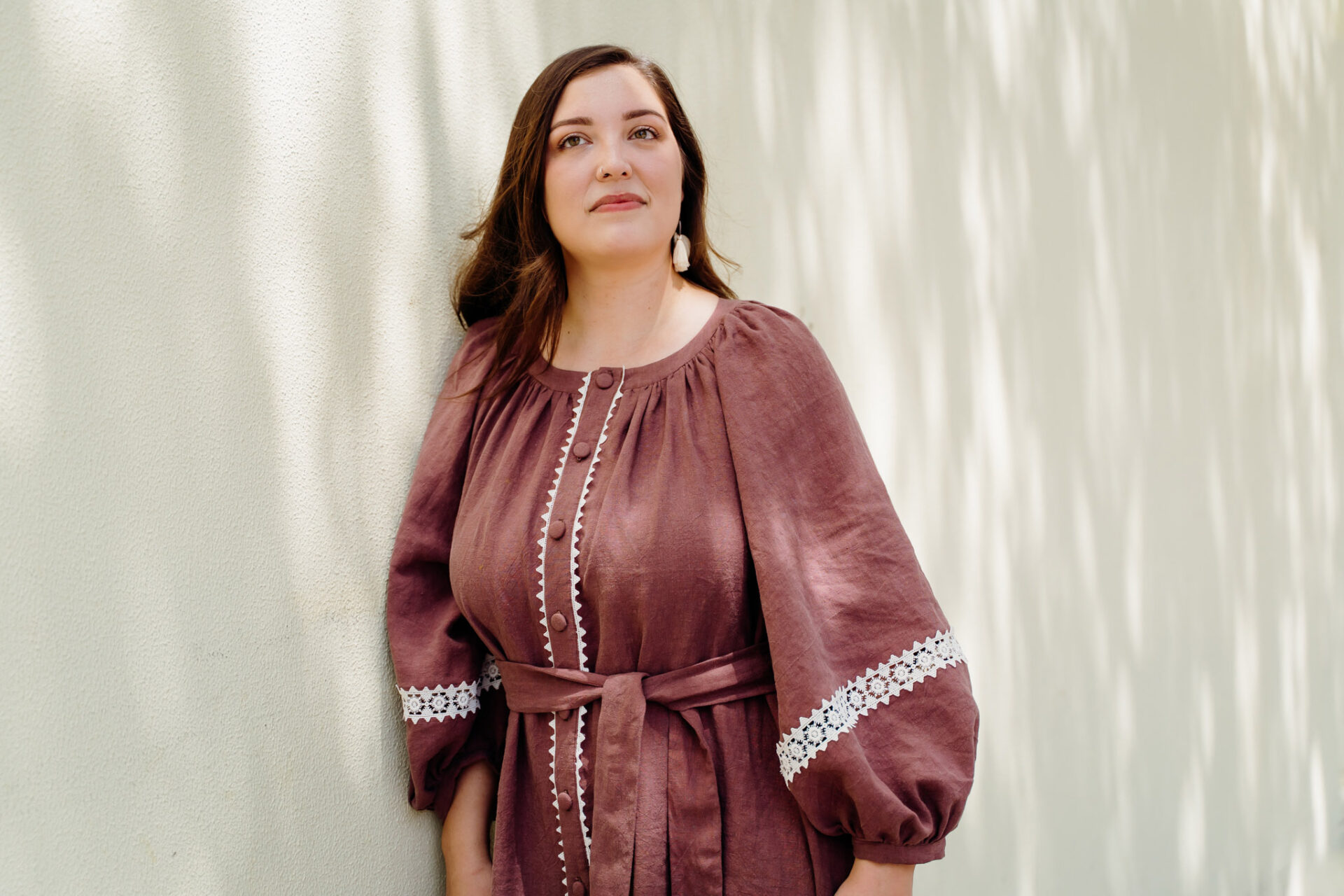Navigating Personal Trauma in an Increasingly Traumatised World

- Words by Peppermint
words REBECCA RAY
Clinical psychologist and author Dr Rebecca Ray explores how we navigate personal trauma in an increasingly traumatised world.
Not every difficult experience is a trauma (despite what social media might attempt to have you believe). I’m the first to share a meme that describes my to-do list as ‘traumatic’, but that’s because I have a sense of humour and a tendency to be unnecessarily melodramatic, not because I support labelling every single life discomfort as clinically significant.
However, it’s also true that we are living in a world that is increasingly traumatised by the effects of climate change, war and a pandemic, layered on top of the existing risk of being seriously injured, assaulted or facing death simply going about our daily lives as humans.
It’s exhausting but, unfortunately, unavoidable… unless you replace your face mask, internet bill and flooded property with a mountain-top cave and a few years of meditation for a life hiatus (even then, I’m betting climate change will find a way to influence your experience!).
For those of us who can’t sidestep the weight of the world right now, I want to help you navigate forward with some tips for responding to trauma, whether it be yours, experienced by someone you care about or occurring for the world at large.
When you’ve been traumatised directly
If you’ve directly experienced the trauma, what you’ll never hear me say is, “Just focus on the positives.” The symptoms of acute trauma can affect every single aspect of your functioning and leave you feeling like you’re floating in a bubble, watching a version of your life happening around you that you don’t recognise, while trying to process extraordinary emotional (and possibly) physical pain at the same time.
Experiencing trauma shatters our sense of psychological safety.
Experiencing trauma shatters our sense of psychological safety. It’s not the time to be looking forward to the next chapter. It’s the time for ensuring that your basic needs are being cared for, that you have loving support around you and that you have access to professional support as required. In the aftermath of the event, it’s important to restore that sense of safety as much as possible with small routines for self-care and not overloading yourself with the need to ‘fix’ everything. Go gently on yourself. Ask for and accept help. You can’t – and shouldn’t – do it all yourself during this time.
When someone you care about has been traumatised
You know someone whose life has been turned upside down by the floods of the eastern seaboard. Or who has watched their loved one attempt to survive Covid-19 via a ventilator. You know someone whose world was okay on Monday, but absolutely not okay on Tuesday.
When someone you care about has been traumatised, your heart will hurt for them (because you’re a good human, not a sociopath). But that doesn’t mean you’ll automatically know what to say or do. While there is no perfect set of instructions for how to support others through trauma, here are my tips…
Don’t
Avoid them, pretend it hasn’t happened or otherwise dismiss their experience. Your absence makes you feel better, and the traumatised person feels isolated and alone.
Placate them with vacuous and invalidating statements like, “Everything happens for a reason. You’ll be stronger from this.” To do so is the equivalent of offering a Band-Aid for a burst appendix and then wondering why your friend is still writhing around in pain.
Say nothing. Your silence might be your attempt to ‘not make it worse’, but all it does is create an island of suffering for your friend, the waters around which are coloured by shame.
Do
Be present. Help where you can. Even if it seems like something small to you, I guarantee it will be received as something significant for the traumatised person.
Validate their experience by acknowledging the event. Our healing happens on a foundation of connection, and that connection starts by feeling seen and understood.
Say something. Anything that comes from a place of connection is better than talk about the weather or silence. Being a person that’s psychologically safe to be around means you know that words count.
When you’re watching trauma happen around the world
One of the issues of the last couple of decades is that no generation that’s come before this time has been confronted with a 24-hour news cycle complete with to-the-minute updates with both video and graphic footage attached.
Our brains are not capable of processing the amount and intensity of this information. Instead, they do what they’ve always done, which is to activate our fear system for survival. We sit at our desks or in our living rooms on the other side of the world, with a nervous system primed for action in response to the war in Ukraine.
There’s nowhere for this energy to go. So, we need to take steps to look after ourselves effectively, rather than staying in a state of hypervigilance and anxiety that only makes it harder for us to function in our own lives.
Switch off the TV. Pop your phone in the drawer for a day. Give your nervous system the chance to downregulate as often as possible. The news cycle won’t do this for you, so it’s up to you to step back so that you don’t burn out.
I know you care deeply and I hope these tips help you care for yourself and those you love mindfully and compassionately, even in the hardest of times.
photos VIA UNSPLASH
JOIN OUR MAILING LIST
Brighten up your inbox with our not-too-frequent emails featuring Peppermint-related news, events, competitions and more!
explore
More articles
Look, I don’t want to make anyone panic but IT’S DECEMBER!!! If you’re planning to give homemade gifts, you’re going to have to act fast. …
Hang out with us on Instagram
🌻 The Paddington 🌻
This is a much-loved staple, created for Issue 50 in 2021. We love seeing the #PeppermintPaddingtonTop continually popping up in our feeds!
How stunning is our model Elon MelaninGoddessEfon – she told us it was one of the first times she had been asked to come to a shoot with her natural hair. 🌻
We worked with South African patternmaker Sarah Steenkamp of @FrenchNavyNow_ to create this wardrobe essential – the perfect puff-sleeve blouse. Raglan sleeves make it the ultimate beginner sew, plus the gorgeous back buttons let you add your own personal twist.
Pattern via the link in bio! 🪡
Photos: @KelleySheenan
Fabric: @Spoonflower
Model: MelaninGoddessEfon

“In the 1940’s, Norwegians made and wore red pointed hats with a tassel as a form of visual protest against Nazi occupation of their country. Within two years, the Nazis made these protest hats illegal and punishable by law to wear, make, or distribute. As purveyors of traditional craft, we felt it appropriate to revisit this design.”
Crafters have often been at the heart of many protest movements, often serving as a powerful means of political expression. @NeedleAndSkein, a yarn store in Minnesota, are helping to mobilise the craftivists of the world with a ‘Melt The Ice’ knitting pattern created by @Yarn_Cult (with a crochet pattern too), as a way of peaceful protest.
The proceeds from the $5 pattern will go to local immigrant aid organisations – or you can donate without buying the pattern.
Raise those needles, folks – art and craft can change the world. 🧶
Link in bio for the pattern.
Images: @Gather_Fiber @NeedleAndSkein @a2ina2 @KyraGiggles Sandi.204 @WhatTracyMakes AllieKnitsAway Auntabwi2
#MeltTheIce #Craftivism #Knitting #CraftForChange

TWO WEEKS TO GO! 🤩
"The most important shift is moving from volume-led buying to value-led curation – choosing fewer, better products with strong ethics, considered production and meaningful stories. Retailers have real influence here: what you buy signals what you stand for. At Life Instyle, this means using the event to discover and invest in small-scale, planet-considerate brands that align with your values and your customer’s conscience. Consumers don’t need more things; they need better things, and retailers play a key role in selecting, contextualising, and championing why those products matter."
Only two more weeks until @Life_Instyle – Australia`s leading boutique retail trade show. If you own a store, don`t miss this event! Connect with designers, source exquisite – and mindful – products, and see firsthand why this is Australia’s go-to trade show for creatives and retailers alike. And it`s free! ✨️
Life Instyle – Sydney/Eora Country
14-17 February 2026
ICC, Darling Harbour
Photos: @Samsette
#LifeInstyle #SustainableShopping #SustainableShop #RetailTradeEvent

Calling all sewists! 📞
Have you made the Peppermint Waratah Wrap Dress yet? Call *1800 I NEED THIS NOW to get making!
This gorgeous green number was modelled (and made) by the fabulous Lisa of @Tricky.Pockets 🙌🏼
If you need a nudge, @ePrintOnline are offering Peppermint sewists a huge 🌟 30% off ALL A0 printing 🌟 when you purchase the Special Release Waratah Wrap Dress pattern – how generous is that?!
Head to the link in bio now 📞
*Not a real number in case that wasn`t clear 😂
#PeppermintWaratahWrapDress #PeppermintPatterns #SewingPattern #WrapDress #WrapDressPattern

8 Things to Know About January 26 - from @ClothingTheGaps:
Before you celebrate, take the time to learn the truth. January 26 is not a day of unity it’s a Day of Mourning and Survival for Aboriginal and Torres Strait Islander peoples.
It marks the beginning of invasion, dispossession, and ongoing colonial violence. It’s time for truth-telling, not whitewashed history.
Stand in solidarity. Learn. Reflect. Act.
✊🏽 Blog written by Yorta Yorta woman Taneshia Atkinson.
🔗 Link in bio of @ClothingTheGaps to read the full blog
#ChangeTheDate #InvasionDay #SurvivalDay #AlwaysWasAlwaysWillBe #ClothingTheGaps

As the world careens towards AI seeping into our feeds, finds and even friend-zones, it`s becoming increasingly hard to ignore.
We just wanted to say that here at Peppermint, we are choosing to not print or publish AI-generated art, photos, words, videos or content.
Merriam-Webster’s human editors chose `slop` as the 2025 Word of the Year – they define it as “digital content of low quality that is produced usually in quantity by means of artificial intelligence.” The problem is, as AI increases in quality, it`s becoming more and more difficult to ascertain what`s real and what`s not.
Let`s be clear here, AI absolutely has its place in science, in climate modelling, in medical breakthroughs, in many places... but not in replacing the work of artists, writers and creatives.
Can we guarantee that everything we publish is AI-free? Honestly, not really. We know we are not using it to create content, but we are also relying on the artists, makers and contributors we work with, as well as our advertisers, to supply imagery, artwork or words created by humans. AI features are also creeping into programs and apps too, making it difficult to navigate. But we will do our best to avoid it and make a stand for the artists and creatives who have had their work stolen and used to train AI machines, and those who are now losing work as they are replaced by this energy-sapping, environment-destroying magic wand.
Could using it help our productivity and bottom line? Sure. And as a small business in a difficult landscape, that`s a hard one to turn down. We know other publishers who use AI to write stories, create recipes, produce photo shoots... but this one is important to us.
`Touch grass` was also a Merriam-Webster Word of the Year. We`ll happily stick with that as a theme, thanks very much. 🌿



















